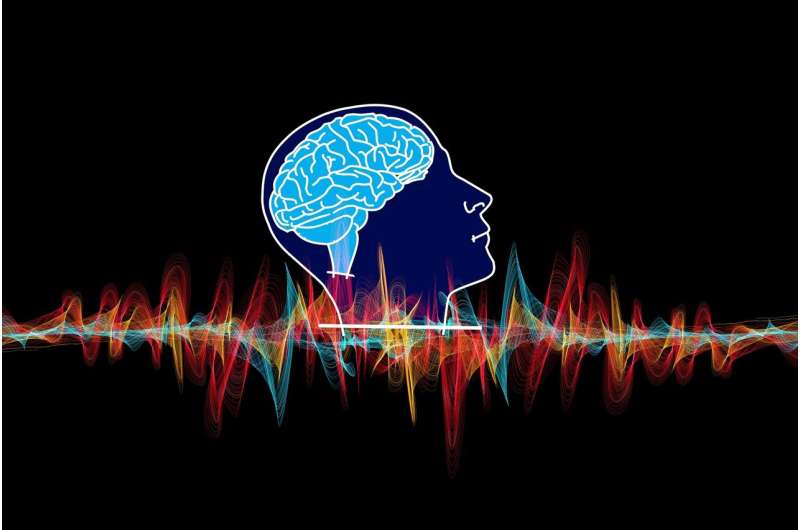This article has been reviewed according to Science X's editorial process and policies. Editors have highlighted the following attributes while ensuring the content's credibility:
fact-checked
trusted source
proofread
How our brains' beta waves predict stuttering

Beta waves are brainwaves associated with thought, actions, and reactions; for example, beta waves affect how you would react to a cyclist speeding toward you as you cross the street. New research finds that they can also predict when a person will stutter.
A team of speech and psychology researchers recruited 30 stutterers to identify 50 words that were likely to be stuttered. Participants were then shown a screen with visual cues prompting them to say each word. During this task, researchers monitored participants' brain activity using magnetoencephalography (MEG)—a neuroimaging technique that maps the brain's electrical currents. They found increased beta waves associated with the cues that preceded the words participants stuttered in comparison to the words participants spoke fluently.
Their findings are published in Neurobiology of Language.
"We know that in the context of this task, participants anticipate stuttering, meaning, they know when they are going to stutter," says Eric S. Jackson, associate professor of communicative sciences and disorders at NYU Steinhardt.
"Because stutterers are typically averse to stuttering due to a lifetime of negative reactions from listeners, their initial reaction involves inhibition or a 'freezing-like' response."
The study says that the beta activity is likely occurring in the right pre-supplementary motor area, an area of the brain critical in pausing or stopping movements or actions. The authors note that MEG has limitations regarding spatial precision and therefore, while it's not as likely, it's possible that the beta activity could be occurring in a neighboring area of the brain such as the right dorsolateral prefrontal cortex which plays a key role in other forms of inhibitory control as well as memory and decision making.
Jackson says that previous research has focused on comparisons of fluent speech between stutterers and non-stutterers and that this experiment may encourage additional research focusing specifically on stutterers and their neural activity related to stuttered speech.
"This study is the largest and most balanced neurofunctional investigation of stuttered vs. fluent speech to date," the authors write.
"We would like to further understand these responses in stutterers, especially whether or when they develop in children. We're also interested in targeting these responses with neuromodulation to test whether altering activity in this area facilitates fluency for stutterers," says Jackson.
More information: Joan Orpella et al, Reactive Inhibitory Control Precedes Overt Stuttering Events, Neurobiology of Language (2024). DOI: 10.1162/nol_a_00138

















